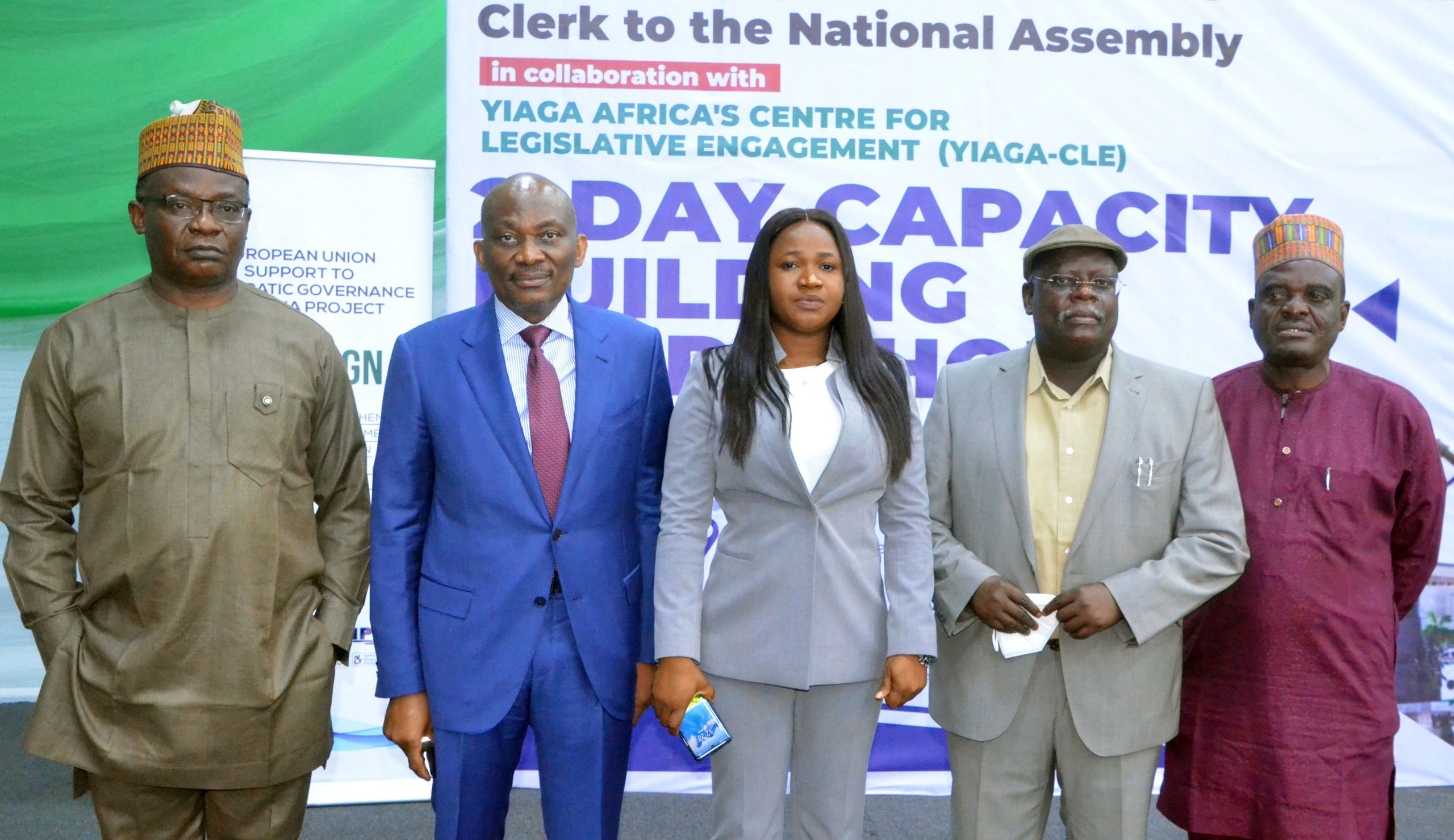Business
NASS To Verify Companies’ Claims On N375bn Grant

The National Assembly will verify claims made by companies that are shortlisted for the N375billion Export Expansion Grant (EEG)
Director-General of the Nigerian Export Promotion Council (NEPC), Dr Ezra Yakusak, disclosed this during the signing of a memorandum of understanding between the NEPC and the Small and Medium Enterprise Development Agency of Nigeria in Abuja.
“I had announced that the FG had approved the EEG, but it is not automatic. It goes through the National Assembly either for ratification or approval. It is before the National Assembly who will look at it and justify or verify each of the claims made by the companies,” Yakusak said.
The EEG is a grant provided to exporters to enable them to stay competitive in the global market. The N375 billion is the backlog of the EEG from 2017 to 2020, whose payment was delayed due to budgetary constraints by the Federal Government. About 285 companies will benefit from the scheme.
According to Yakusak, the essence of the MoU between the two agencies is to expose Nigerian micro, small and medium enterprises to the West African market.
“This is the first time we are doing this. There is a need for us to collaborate, get our SMEs together for the purpose of empowering them and taking them to some key international markets.
“Right now, with this MoU, the first market we intend to go by way of trade fair or solo exhibition is The Gambia. It is an English-speaking country, and trade between Nigeria and The Gambia is not encouraging. We need to ensure we scale up trade between the two countries,” he noted.
He said, MSMEs would apply and the agencies would look at the possibility of their products being accepted in The Gambia.
He stressed that the agreement was another way of showing the general public the level of cooperation and synergy among related government agencies in boosting the Nigerian economy through the promotion of non-oil exports.
On his part, the Director-General, SMEDAN, Wale Fasanya, described the MOU as a marriage of two minds.
“We will take MSMEs with exportable products and create a market for them within the West African market,” he said.
“We are looking at other agencies of government doing things that increase MSMEs competitiveness. We are going to work with them and we will not work alone,” he noted.
Fasanya said SMESDAN was thinking out of the box, given that a number of MSMEs found it difficult to access funds. He stressed that the agency was looking at programmes where it would combine financial initiatives with capacity building.
He disclosed that before the end of this year, SMEDAN and other partners would set up a microfinance institution to empower MSMEs.
“Before the end of the year, we are going to roll out a microfinance institution in conjunction with a number of business member organisations. NASME met me and said they would like to even have shares.”
Business
Two Federal Agencies Enter Pack On Expansion, Sustainable Electricity In Niger Delta

Business
Why The AI Boom May Extend The Reign Of Natural Gas

Business
Ogun To Join Oil-Producing States ……..As NNPCL Kicks Off Commercial Oil Production At Eba

-

 Sports2 days ago
Sports2 days ago2026 WC: Nigeria, DR Congo Awaits FIFA Verdict Today
-

 Environment2 days ago
Environment2 days agoOxfam, partners celebrate 5 years of climate governance programmes in Nigeria
-
Politics2 days ago
ADC, PDP, LP Missing As INEC Set For By- Elections In Rivers
-
Politics2 days ago
FG’s Economic Policies Not Working – APC Chieftain
-

 Politics2 days ago
Politics2 days ago2027: Diri Unveils RHA LG Coordinators, APC Congress Panel
-

 Politics2 days ago
Politics2 days agoReps To Meet,’Morrow Over INEC’s 2027 Election Timetable
-

 Politics2 days ago
Politics2 days agoGroup Continues Push For Real Time Election Results Transmission
-
Sports2 days ago
Sunderland Overcome Oxford Challenge

